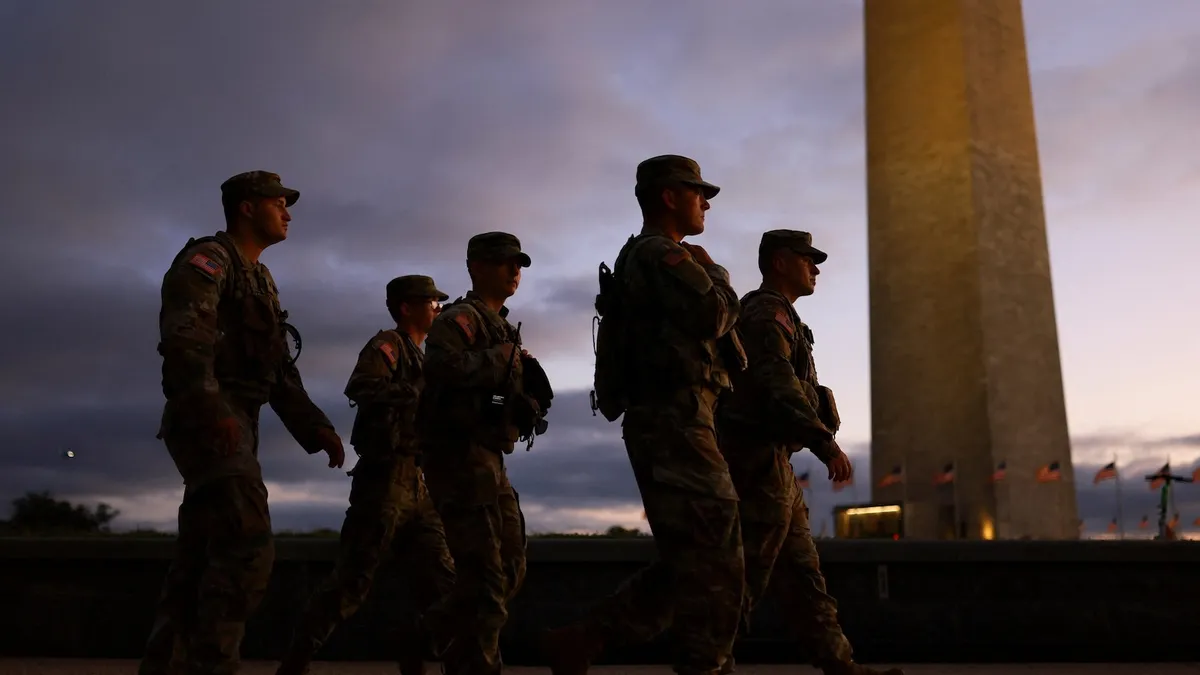
In a significant development, Defense Secretary Pete Hegseth has signed an order permitting National Guard troops stationed in Washington, D.C. to carry weapons as needed for their missions. This new directive is expected to be implemented in the coming days, according to a source familiar with the situation. This authorization empowers the nearly 2,000 mobilized troops in the nation's capital to broaden their operations, potentially including security patrols in neighborhoods plagued by crime.
During a visit to the National Guard personnel on Thursday, President Donald Trump indicated that the military forces would assume a more pronounced role in local law enforcement efforts within the city. "You got to be strong, you got to be tough," Trump remarked to the troops at the U.S. Park Police Anacostia Operations Facility. "You got to do your job. Whatever it takes to do your job," he stressed.
A defense official later confirmed the new policy in a statement provided to ABC News. “At the direction of the Secretary of Defense, joint task force DC members supporting the mission to lower the crime rate in our Nation’s capital will soon be on mission with their service-issued weapons, consistent with their mission and training,” the official stated. The commanding general of the D.C. National Guard retains the authority to make necessary adjustments to their force posture in collaboration with the D.C. Metropolitan Police and federal law enforcement partners.
Last week, President Trump expressed his concerns regarding crime levels in Washington, D.C., declaring that they were "out of control." He announced plans to take over police operations in the city and ordered 800 members of the D.C. National Guard to active duty. These troops have begun to arrive in shifts at popular tourist destinations, such as the Washington Monument, where crime rates are relatively low. The initial presence of unarmed soldiers and airmen has been met with public engagement, as they posed for pictures with tourists and interacted with local children.
In an effort to bolster the National Guard's presence, Trump has requested additional troops from nearby states. To date, six Republican governors have responded to this request, with troops arriving from Louisiana, Tennessee, Ohio, South Carolina, and Mississippi. As of Thursday morning, most of these additional forces were already in place, bringing the total troop size in the nation's capital to nearly 2,000.
During his visit, Trump hinted that the troops could remain deployed for six months or longer, stating, “You do the job on safety, and I'll get this place fixed up physically, and we're going to be so proud of it at the end of six months.” He emphasized plans for extensive beautification projects, assuring that by the end of the year, the city would be revitalized and visually appealing.
Historically, U.S. presidents have relied on the National Guard to secure cities only in extraordinary circumstances, such as during major events like the presidential inauguration or in response to riots, including the January 6, 2021, protests at the Capitol. According to crime statistics released by the D.C. Metropolitan Police Department, violent crime in the city has actually decreased significantly, showing a 26% drop since 2024, marking a 30-year low.
In contrast to Trump's approach, D.C. Mayor Muriel Bowser criticized the deployment of the National Guard, describing it as an "armed militia in the Nation’s Capital." She highlighted the progress made in reducing crime in the city over the past two years, attributing this decline to hard work and reforms in the public safety ecosystem, including legislative changes.
This ongoing situation underscores the complexities of law enforcement and public safety in Washington, D.C., as military and local authorities navigate the challenges of maintaining security while addressing community concerns.